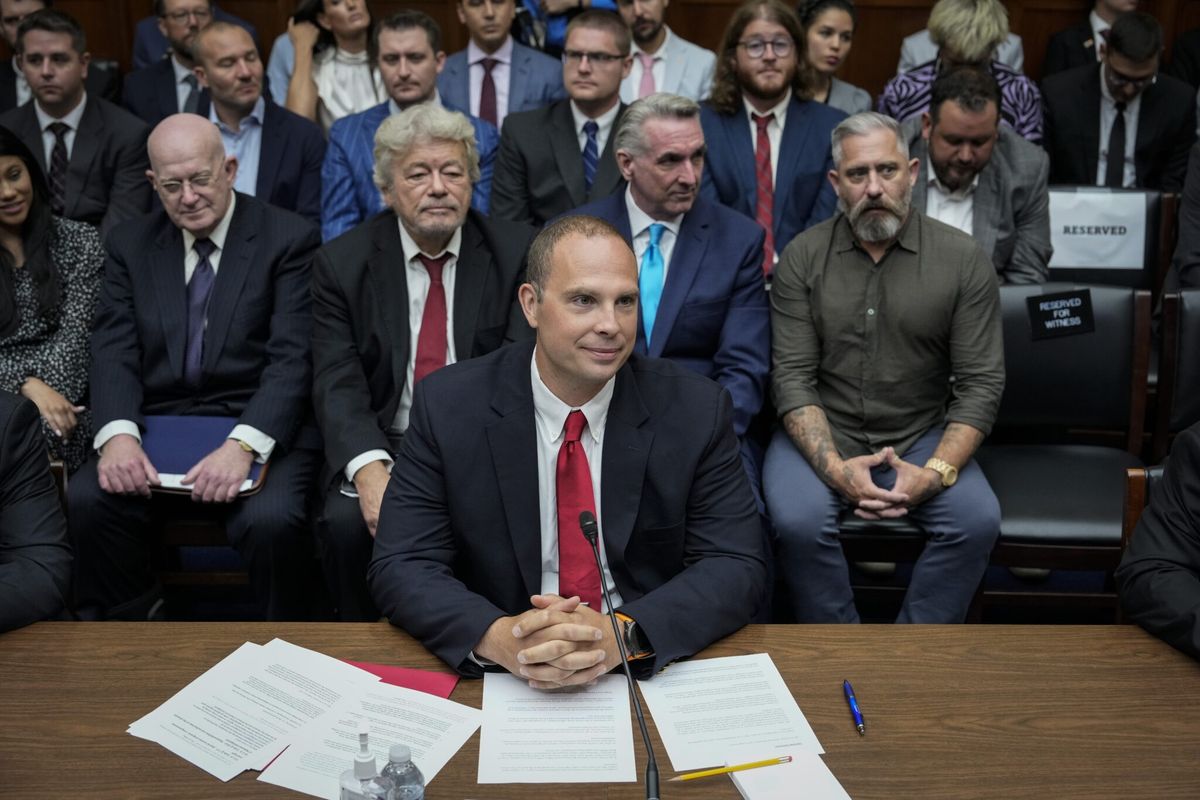CIPHER BRIEF REPORTING — With President Joe Biden and top Republican lawmakers sitting down together this week in the hopes of averting an historic government default, a top Pentagon official said a principal concern is that Congress will not pass a budget, but instead opt for a continuing resolution.
“I can't get up in front of any group and not talk about continuing resolutions and how harmful they are to the department,” U.S. Secretary of the Air Force Frank Kendall said Tuesday in front of an audience at the Ash Carter Exchange in Washington D.C. “Now, [we’re] going into a world in which we're going to have to wait for the Congress to act before we can move forward in a lot of these programs.”
While the Pentagon aims to procure and develop advanced aircraft, Kendall said the department’s focus also requires reliable longer-term budgetary planning, as opposed to stop-gap measures, amidst efforts to prepare for a bevy of security risks, including mounting Chinese cyber and space-related threats.
Chinese military officials are “thinking ahead to what we're going to do next, and trying to develop things to counter that before we get it in the field,” he said. “We have got to move fast.”
Looking for a way to get ahead of the week in cyber and tech? Sign up for the Cyber Initiatives Group Sunday newsletter to quickly get up to speed on the biggest cyber and tech headlines and be ready for the week ahead. Sign up today
Continuing resolutions (CRs) have become increasingly frequent stop-gap solutions designed to temporarily maintain current levels of federal funding. They afford more time for negotiations over longer-term spending plans, and have become a reality with which the Pentagon has operated under for most of the past two decades.
Since FY2000, Congress has passed defense appropriations on time only six times, the last time being in 2019. “The DOD is used to this," said Seamus Daniels, a fellow for Defense Budget Analysis in the International Security Program at the Center for Strategic and International Studies. "It is not a stranger to starting with a CR.”
Daniels told The Cipher Brief, “it’s when we’re getting into longer-term CRs, past December, that we’re seeing severe impacts on how the [Defense] department operates.”
In 2017 and 2018, appropriations were not passed until the spring.
“That’s where the rubber hits the road,” Daniels added. “Because you have some programs that are planning to ramp up funding. And that would be prevented.”
Those sorts of delays, amidst growing conflicts in Europe and emerging threats from China, remain a top Pentagon concern.
It's not just for the President anymore. Are you getting your daily national security briefing? Subscriber+Members have exclusive access to the Open Source Collection Daily Brief, keeping you up to date on global events impacting national security. It pays to be a Subscriber+Member.
There are “about a dozen new starts that we've put in our FY24 budget (request), and a total of at least 20 things that have increased funding,” Secretary Kendall noted Tuesday, referencing electronic warfare and cyber capabilities, as well as remote weapons and other technologies Pentagon officials hope to further develop. “I'm working really, really hard to get the Congress to move forward on these things.”
In 2021, the U.S. Government Accountability Office commissioned a report to examine the effects of CRs, prompted in part by Defense Department warnings that they delay the agency’s “ability to pay for goods or services and can lead to repetitive administrative tasks or incremental planning.”
GAO found that while the Pentagon adopted measures to mitigate CRs’ effects, civilian hiring practices nonetheless slowed, with officials claiming that military planning typically undergoes a shift to the “avoidance of funding risks rather than planning based on engineering and test results.”
With the U.S. facing the prospect of an unprecedented default amidst an impasse over whether to raise a $31.4 trillion U.S. debt ceiling, House Speaker Kevin McCarthy has said his chamber would not approve a ceiling raise without significant spending cuts to the deficit. More than a decade earlier, a similar standoff prompted Standard & Poor’s to downgrade the US’ credit rating to AA+ from AAA before a deal was ultimately reached. In fact, lawmakers have engaged in similar contests at least 10 times in the past 13 years.
A default this time, economists say, would likely plunge the U.S. economy into a recession, permanently raise U.S. borrowing rates, and delay payments to federal civilian workers, including the nation’s 1.4 million active-duty military members.
By Cipher Brief Deputy Managing Editor David Ariosto
The Cipher Brief hosts expert-level briefings on national security issues for Subscriber+Members that help provide context around today’s national security issues and what they mean for business. Upgrade your status to Subscriber+ today.











